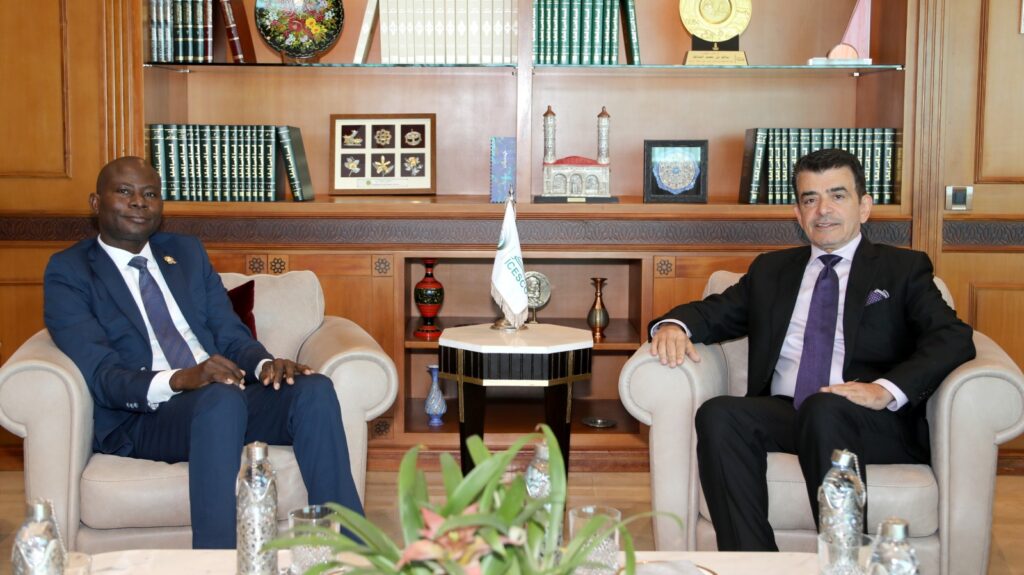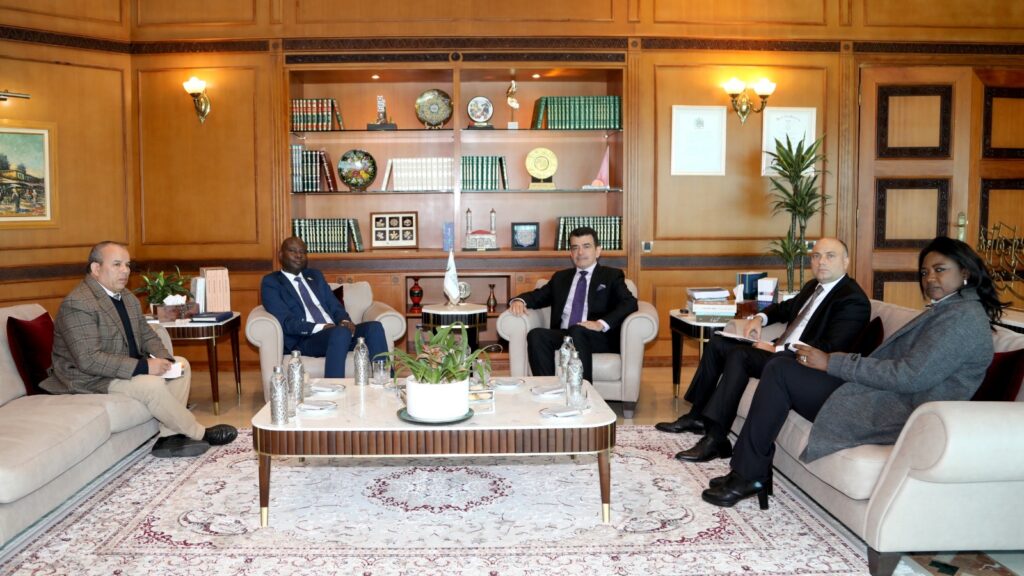Work session between the new Director General of CAFRAD and the Director General of ICESCO at the headquarters of the Institution in Rabat (Kingdom of Morocco).


Since the complex and interdependent challenges of the globalized world require collective intelligence and cooperative action, CAFRAD is looking for credible and strategic partners. The new Director General of CAFRAD, Dr. Coffi Dieudonné ASSOUVI, was received in audience by His Excellency Mr. Dr Salim M. AlMalik Director General of ICESCO.
Monday, December 16, 2024 was marked by the audience that His Excellency, the Director General of ICESCO granted to the new Director General of the Pan African Intergovernmental Organization (CAFRAD). After the exchange of pleasantries and words of gratitude, the discussions focused on two points: the presentation of the two structures by the two Managers and the definition of cooperation leads.
The presentation of the two international organizations
In order to get to know each other better, the two diplomats presented the Organization that they have the honor of leading.
The Islamic World Educational, Scientific and Cultural Organization, formerly known as the Islamic Educational, Scientific and Cultural Organization, is an international organization of the Organization of Islamic Cooperation (OIC) created in 1982 and specializing in the fields of education, science, culture and communication in Islamic countries. It aims to support and strengthen links between Member States.
ICESCO has 54 members and three observer states, its headquarters is located in Rabat, Morocco. Its General-Director is Dr. Salim bin Mohammed Al-Malik. As for CAFRAD, it is a Pan-African International Organization of a scientific, technical and cultural nature, dedicated to the public service of training, research and public innovation in Africa.
The African Center for Administrative Training and Research for Development (CAFRAD) is a Pan-African intergovernmental organization created in 1964 by African governments with the support of UNESCO. It aims to support the transformation and emergence efforts of African states through capacity building and modernization of public administration and governance. Its headquarters is in Rabat. CAFRAD has 36 member states. Its headquarters initially in Tangier is transferred to Rabat by decision of the Board of Directors.
Aiming to make public services an essential lever of sustainable and inclusive development, the well-being of populations and support for private businesses, African leaders, at the initiative of the King of Morocco, the African Center of Administrative Training and Research for Development (CAFRAD) was created as a pan-African intergovernmental body, with the mission of:
- Undertake, promote and coordinate studies and research of a comparative nature on administrative problems linked to the economic and social development of Africa;
- Organize scientific meetings as well as study cycles and professional development sessions for senior managers in the public, Para-public and private sectors of African countries who play a significant role in development;
- Establish a framework for recruiting and using African consultants and experts, in order to respond to the different specific needs of African countries;
- Collect, analyze and disseminate all documentation relating to the structure, organization and administrative methods of different African countries;
- Make appropriate publications…

Defining cooperation leads and partnerships between the two Organizations
A fruitful and constructive partnership has always existed between the two Organizations. But the opportunity of these exchanges consists of energizing excellent relations and exploring new action plans and joint projects.
These are:
- Education, teaching, training and capacity building for Africa in the 21st century;
- Science and technology as drivers of multifaceted transformations in Africa;
- Culture as the basis of development and good governance in Africa as well as a factor of identity and resilience of the African man.
Topics such as human security, global security, asymmetric conflicts, terrorism, piracy, cybersecurity, climate change, new structural economy such as green economy, circular economy, blue economy, digital economy, the social and solidarity economy as well as all the changes that the world and Africa are facing. For the two leaders, it is a question of joining forces and pooling their resources to contribute to the emergence of a new Africa as desired by the African Union in its Agenda of 2063.
At the end of the meeting, the two leaders agreed to have their respective teams work on the execution of joint projects that are catalysts for sustainable and inclusive development in Africa.




